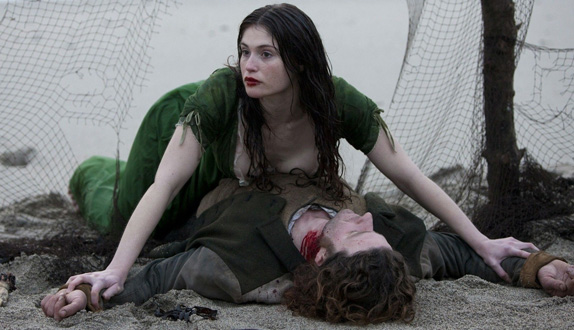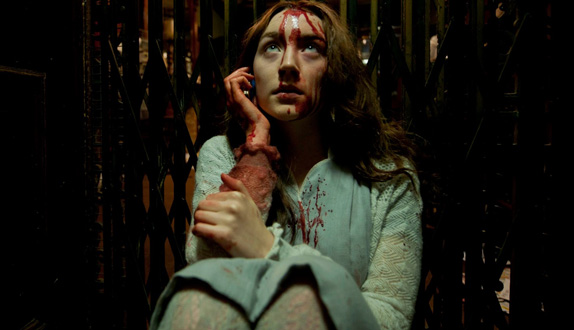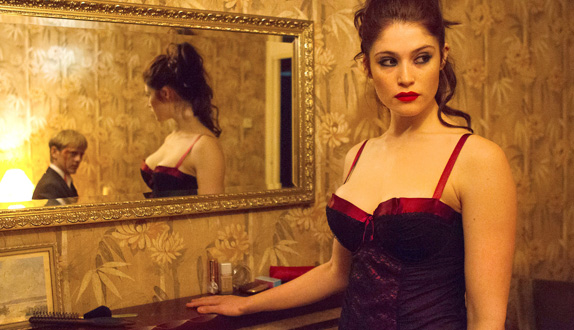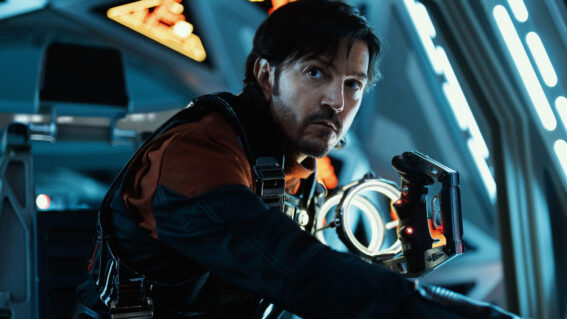Interview: ‘Byzantium’ director Neil Jordan

In the shadow of the Twilight phenomenon, the director of the original bloodsucker blockbuster Interview with the Vampire returns to the genre and rewrites the rulebook in Byzantium. From his home in Ireland Neil Jordan talks to Frances Morton about his tale of an immortal mother-daughter duo leading a less-than-glamorous existence, trying to avoid the attention of both everyday folk and their fellow vampires.
Thanks for telling a story with two strong, well-rounded female characters that aren’t defined by relationships with men. Why is that such a rarity in cinema these days?
I have no idea. Movies are becoming very dull. The kind of movies we’re making now are nothing like films made even ten years ago. I’m surprised that any glimmer of reality makes its way through the cinema at all.
Is that because of the commercial machine?
Yeah, because of the blockbusters of Hollywood. They’re generally designed to appeal to young males.
It’s interesting you mention reality because an online comment was posted to Flicks that ‘Byzantium’ “almost felt like there was some truth to it” – when really vampires are totally implausible. Why do you think people respond like that?
I didn’t write this script but one of things that attracted me to it was that it would have been an interesting story even if there were no vampires. They could have been deranged serial killers or something. It would have still been an interesting story between these two women on the run.

What interested you in working in the vampire genre again?
It was quite simply the script. I was not anxious to get back and make a vampire movie. Interview with the Vampire was a specific thing. It was the possibility of making something that had always been in the B-genre and bringing it up to an epic scale and making it with some seriousness and visual splendour. There have been so many lame versions of vampire movies in between times that I really wasn’t interested in returning to the genre but this script gave me the opportunity to reimagine the creature entirely. To rewrite the rules.
You did. How did you decide which rules you could get away with redefining?
It was the simplest thing imaginable really. They can move in the daylight. They don’t have fangs. That was fun, playing with that nail [the vampire’s thumbnail that extends to a talon when about to kill]. [Becoming a vampire] is not like an infection. It had to be a decision they made to go to this island off the west of Ireland. They embark on this horrible and wonderful journey.
If you were immortal, what age would you choose to be for eternity?
I’d be 21 or 22. I’d be the age I was when I wrote my first book and made my first movie. It’s the age you think you were born isn’t it? I’ve been told that people with Alzheimer’s – if you take pictures of them as how they are now they don’t recognise themselves. If you show pictures when they are 21, they say, ‘That’s me’.

You wouldn’t be 16? It’s a hard age for Eleanor in the film.
No, it’s too painful. I was in school and school was horrible.
The old people in the film are ready to die whereas the immortals are troubled. Is mortality a comfort?
The thought of living forever would be horrible. This film is similar to Interview with the Vampire in that way. There were two characters – both of whom who have been given this gift and both reacted to it in totally different ways. Tom Cruise loved the idea of being able to wield the power of life and death over humans forever. Brad Pitt was in a volume of guilt really. This script was similar in that way. Clara takes one attitude towards the gift and Eleanor takes another. One is filled of sexuality and passion and the other guilt and regret. It’s a lovely contrast.

You’ve been writing and directing television lately, is there more scope for being an auteur in television now?
Yeah, there can be. I fell into it by accident because I couldn’t get The Borgias made as a film and I was offered the possibility of making a cable series. I thought this will be great, it will be a 40-hour movie. That’s the way I approached it.
Byzantium is in cinemas now – click for session times

















